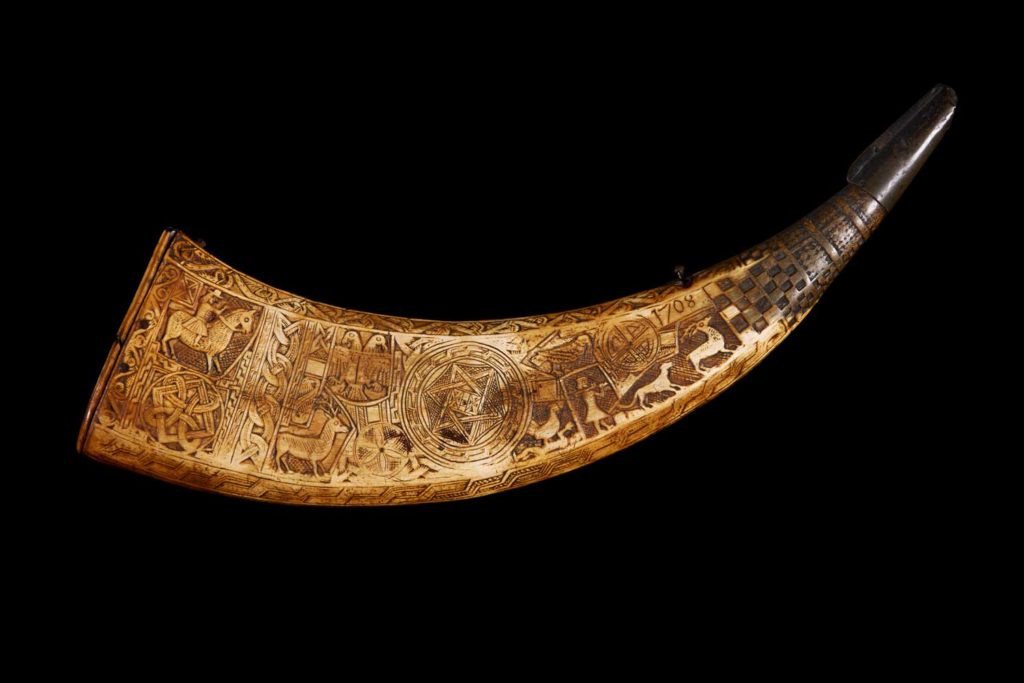
This intricately decorated powder horn is typical of the type made and used in early 18th century Scotland. Flasks like these held the gunpowder needed to fire muskets and pistols. They would have been worn slung over the shoulder on a long strap.
Fashioned from a cow’s horn, the flask would have been softened in boiling oil and flattened, forming its distinctive shape. The wider end is for filling the horn, while the narrow end would have been used for accurately measuring out the powder. There is no metal involved – nothing that might cause a spark and ignite the contents.
The carving on this powder horn brings us closer to the person who owned it. There are circles and panels of Celtic knotwork, scrolls and chequerboard patterns. On one side we can see hunters and their prey: a bird in flight, a deer chased by a hound.
On the other side a turreted castle has been carved near a clan badge, perhaps the best clue to the family who owned the flask. This is the coat of arms of Mackenzie of Seaforth. Look closely and you can see the clan badge, the stag’s head surmounted by the earl’s coronet, on top of which sits the Mackenzie crest, the burning mountain. The arms are supported by two bearded clansmen, their lit torches matching their flaming hair.
The Mackenzies were a powerful clan in the north of Scotland, holding land across Ross-shire and Kintail. They were staunch supporters of the Jacobite rising of 1715 – could this horn have held powder fired in that cause?